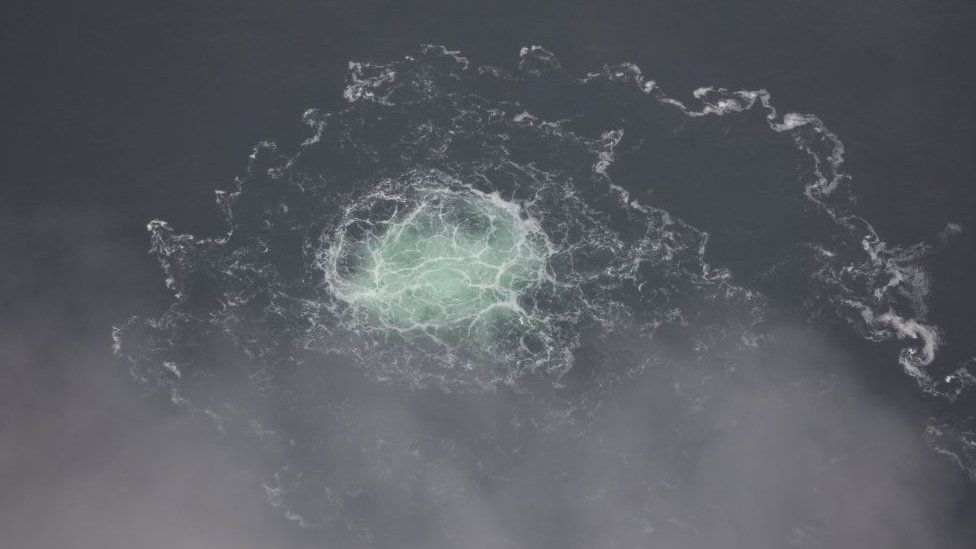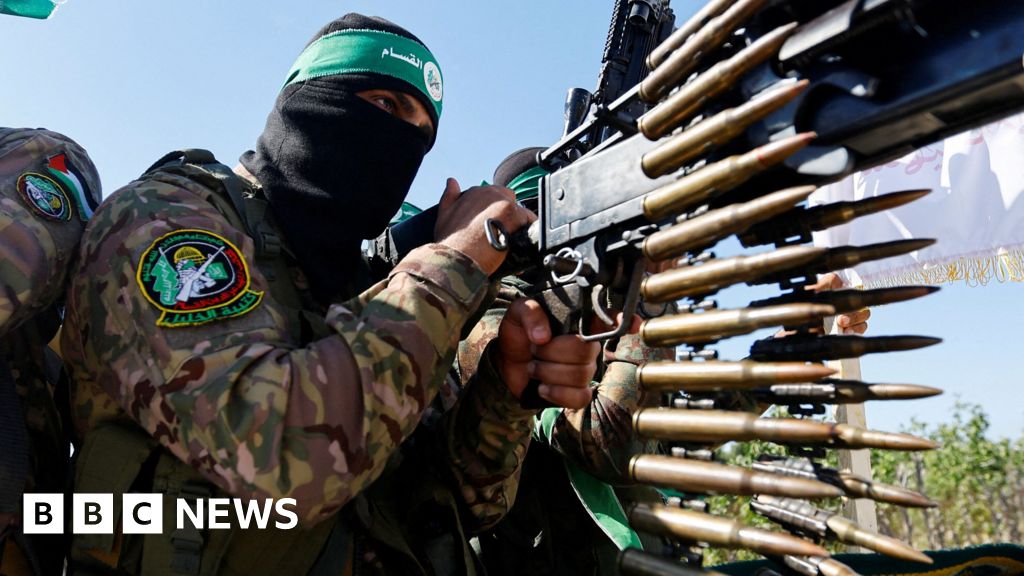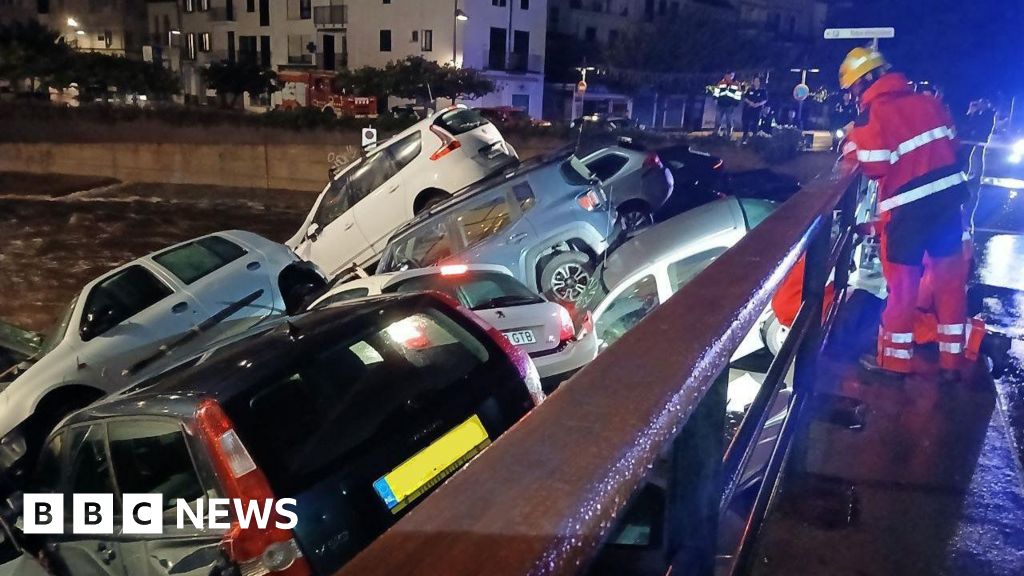ARTICLE AD BOX
 Image source, Swedish Coast Guard via Getty Images
Image source, Swedish Coast Guard via Getty Images
Ukraine has denied any involvement in last September's attack on the Nord Stream pipelines, which carried Russian gas to Europe.
Kyiv's remarks follow a report from the New York Times, which cites anonymous US intelligence officials who suggest a pro-Ukrainian group was to blame.
In a separate report, German media say investigators believe they identified the boat used to plant the explosives.
Gas deliveries through the pipeline had been suspended before the blasts.
Russia shut down the Nord Stream 1 pipeline in August last year, claiming it needed maintenance. Nord Stream 2 had never been put into service.
The exact cause of the 26 September blasts that hit the natural gas pipelines is unknown, but it is widely believed they were attacked.
Moscow has blamed the West for the explosions and called on the UN's Security Council to independently investigate them.
Nato and Western leaders have stopped short of directly accusing Russia, although the EU has previously said Russia uses its gas pipelines as a weapon against the West.
On Tuesday, the New York Times reported that new intelligence reviewed by US officials suggested that a pro-Ukrainian group carried out the attack on the Nord Stream pipelines.
Citing anonymous US officials, the report said there was no evidence that Ukrainian President Volodymyr Zelensky or his top lieutenants were involved in the operation.
The US newspaper reported that the officials declined to disclose the nature of the intelligence, how it was obtained or "any details of the strength of the evidence it contains".
It added: "Officials who have reviewed the intelligence said they believed the saboteurs were most likely Ukrainian or Russian nationals, or some combination of the two."
Mykhailo Podolyak, a senior advisor to Ukrainian President Volodymyr Zelensky, said the Ukrainian government "was absolutely not involved" in the sabotage. In a statement in response to the New York Times report, Mr Podolyak added that Kyiv had no information about what had happened.
In response to the report, Russia's deputy UN envoy Dmitry Polyanskiy said: "[It] only proves that our initiative on launching an international investigation under the auspices of the UN Secretary-General is very timely."
Also on Tuesday, German newspaper Die Zeit reported that German authorities had made a breakthrough in their investigation into the cause of the attacks.
According to joint research published by the paper and other German media organisations, the boat used to plant the explosives was a yacht hired from a firm based in Poland, which reportedly belonged to two Ukrainians. The nationalities of those who carried out the attack were unclear.
However, the paper says German investigators have not yet found any evidence as to who ordered the destruction. It also points out that there is still the possibility of a false flag operation which was intended to point towards Ukraine.
At least 50m (164ft) of the underwater Nord Stream 1 pipeline bringing Russian gas to Germany is thought to have been destroyed by September's blast.
Danish police believe "powerful explosions" blew four holes in the pipe and its newer twin, Nord Stream 2.
German, Danish and Swedish authorities have all been investigating the incident.
For decades, Russia supplied huge amounts of natural gas to Europe. But after the war in Ukraine began in February last year, most European countries drastically reduced their reliance on Russian energy.
Watch: Swedish newspaper's undersea video of 'blown-up Nord Stream 1 pipeline'

 1 year ago
18
1 year ago
18








 English (US)
English (US)